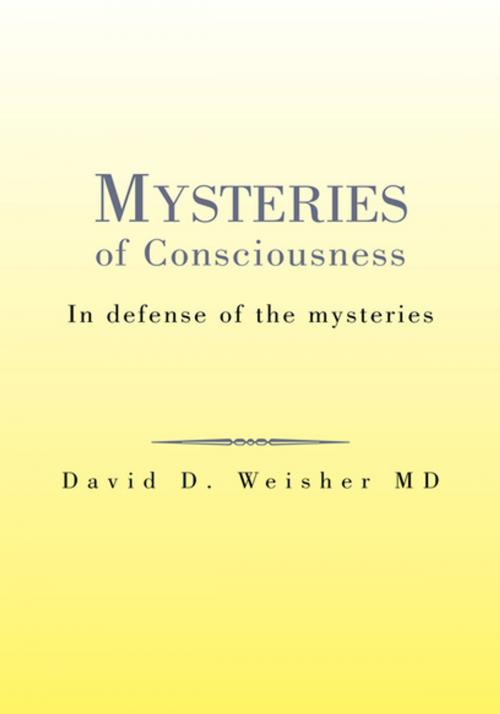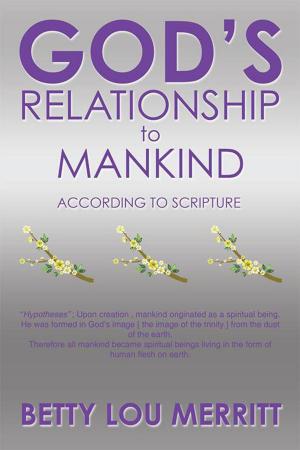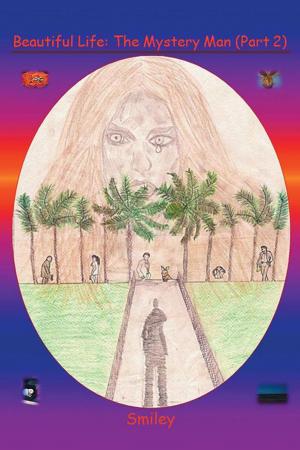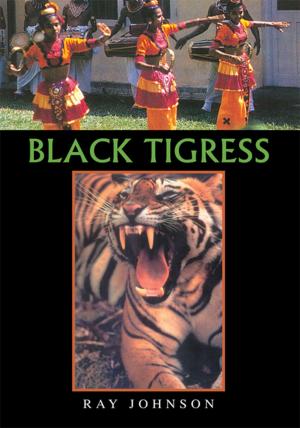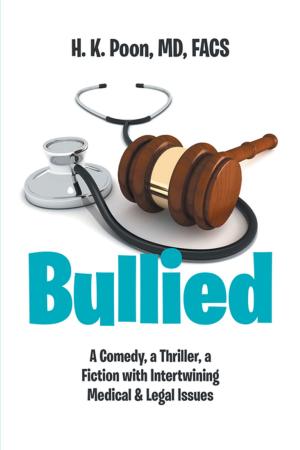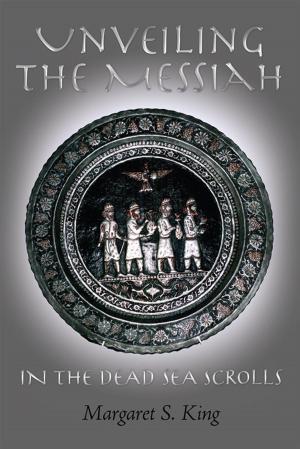Mysteries of Consciousness
In Defense of the Mysteries
Nonfiction, Health & Well Being, Self Help, Mental Health, Death, Grief, Bereavement| Author: | David D. Weisher | ISBN: | 9781462839964 |
| Publisher: | Xlibris US | Publication: | February 2, 2005 |
| Imprint: | Xlibris US | Language: | English |
| Author: | David D. Weisher |
| ISBN: | 9781462839964 |
| Publisher: | Xlibris US |
| Publication: | February 2, 2005 |
| Imprint: | Xlibris US |
| Language: | English |
Man is by nature a philosophical being. Wars are fought over philosophical differences of social-economics, religion, geopolitics and racial arrogance.
Arguably, the greatest philosophical quest of mankind has been the overwhelming desire to know Self; to understand the nature of being. Who are we? Where did we come from? Where are we going? Are we just a roll of the dice in the universe or is there orchestration in our existence? Socrates, Plato, Phathagoras, Nietzsche all had philosophies of human consciousness and the nature of being. This book brings a message from the beyond to help answere these questions.
I think, therefore I am does not answer the question. What is the I am? Are you the sum aggregate of an epiphenomenon of random firing neurons that simply no longer exist after the complex system dies or are you a spirit that temporarily resides in this brain machine that is liberated upon the death of this complex neurological system? These two philosophies are not only basic, they are opposite and opposing. Both can not be true. Either Life is a kaos between two nothings or it is a complex and dynamic co-existence between the physical and spiritual worlds. This book examines this question like no other because of the unique background of the author. Not only is he a Neurologist, giving him a position of some authority on this subject, but he is also an engineer, which contribute a degree of logic to the equation. His past profession as a mixed gas deep sea diver gives a bold practical presentation to the subject of near death experience.
At one time during the authors youth, he was firmly convinced that human consciousness was machine in nature only and ceased to exist with death of the brain-machine. He no longer holds this view because of his personal experiences as a neruologist and has thus been willing to be open minded. This book is the result of (and an explanation for) this change of view. It present the argument for Dualism (Co-existence of spirit and brain) in personal, scientific and intellectual terms.
This book challenges the reader; to open his or her eyes, think outside the narrow western religious box, and perhaps move a little closer to God.
Chapter one tells the authors personal story and how his experience of simply listening to patients helped him think outside the box. Chapter two presents the argument for dualistic philosophy on purely scientific and neurological terms. Chapter three reviews selected cases in current literature and examines them from a neurological perspective. Chapter four reviews selected cases in current literature supporting reincarnation. Chapter five helps integrate this knowledge with western Judeo-Christian philosophy and helps us understand the origins of the western view.
The Book is meant to be small so that it will be read. As an engineer, the author is inclined to straight talk as opposed to bull verbiage. I think you will find this little yellow book fascinating, provocative and thought provoking.
Man is by nature a philosophical being. Wars are fought over philosophical differences of social-economics, religion, geopolitics and racial arrogance.
Arguably, the greatest philosophical quest of mankind has been the overwhelming desire to know Self; to understand the nature of being. Who are we? Where did we come from? Where are we going? Are we just a roll of the dice in the universe or is there orchestration in our existence? Socrates, Plato, Phathagoras, Nietzsche all had philosophies of human consciousness and the nature of being. This book brings a message from the beyond to help answere these questions.
I think, therefore I am does not answer the question. What is the I am? Are you the sum aggregate of an epiphenomenon of random firing neurons that simply no longer exist after the complex system dies or are you a spirit that temporarily resides in this brain machine that is liberated upon the death of this complex neurological system? These two philosophies are not only basic, they are opposite and opposing. Both can not be true. Either Life is a kaos between two nothings or it is a complex and dynamic co-existence between the physical and spiritual worlds. This book examines this question like no other because of the unique background of the author. Not only is he a Neurologist, giving him a position of some authority on this subject, but he is also an engineer, which contribute a degree of logic to the equation. His past profession as a mixed gas deep sea diver gives a bold practical presentation to the subject of near death experience.
At one time during the authors youth, he was firmly convinced that human consciousness was machine in nature only and ceased to exist with death of the brain-machine. He no longer holds this view because of his personal experiences as a neruologist and has thus been willing to be open minded. This book is the result of (and an explanation for) this change of view. It present the argument for Dualism (Co-existence of spirit and brain) in personal, scientific and intellectual terms.
This book challenges the reader; to open his or her eyes, think outside the narrow western religious box, and perhaps move a little closer to God.
Chapter one tells the authors personal story and how his experience of simply listening to patients helped him think outside the box. Chapter two presents the argument for dualistic philosophy on purely scientific and neurological terms. Chapter three reviews selected cases in current literature and examines them from a neurological perspective. Chapter four reviews selected cases in current literature supporting reincarnation. Chapter five helps integrate this knowledge with western Judeo-Christian philosophy and helps us understand the origins of the western view.
The Book is meant to be small so that it will be read. As an engineer, the author is inclined to straight talk as opposed to bull verbiage. I think you will find this little yellow book fascinating, provocative and thought provoking.
